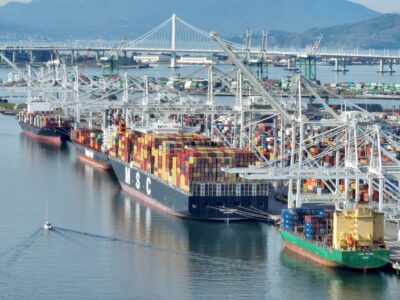Could the Fiscal Cliff Finally Lead to Transit Consolidation?
Maybe the fiscal cliff will finally do what the Bay Area Council has been advocating for years: achieving some form of consolidation among the region’s 27 independent transit agencies. During discussions yesterday on the fiscal fate of BART, several Board directors suggested that consolidation could be an answer to saving the system.
Admirably, BART before the pandemic received 70% of its funding from fare revenue, higher than many systems nationwide. With the massive shift to remote work, however, ridership plunged, has been slow to recover and has left BART and other transit agencies staring down the barrel of a massive budget hole in the coming years. The Council this year helped secure $5.1 billion in the state budget for transit, but that money along with other regional funding sources is expected to run out in the next few years.
Even before the pandemic, the Council had advocated vociferously for consolidating transit operations, arguing that the current system is inefficient and often doesn’t serve the needs of riders. Council CEO Jim Wunderman in recent years helped lead a regional task force that explored ways to achieve better coordination among transit agencies on things like fares, scheduling and signage. The work produced some good changes, but has come up short of the transformational reform we envision and that’s needed as new workplace and commuter patterns solidify.
It’s unclear where all of this might lead. BART officials after yesterday’s meeting said there are no formal plans for consolidation. And with any consolidation likely to take many years, it doesn’t eliminate the urgent and more immediate need for transit agencies to seriously examine their operations for cost savings and efficiencies, while continuing to prioritize measures related to crime, safety and accountability that encourage riders to return. To engage in the Council’s transportation policy work, please contact Vice President Emily Loper.






